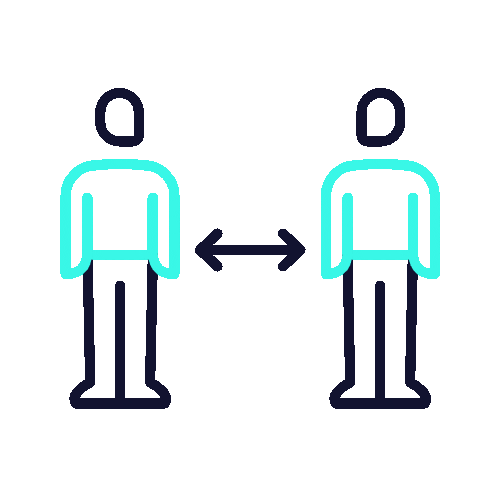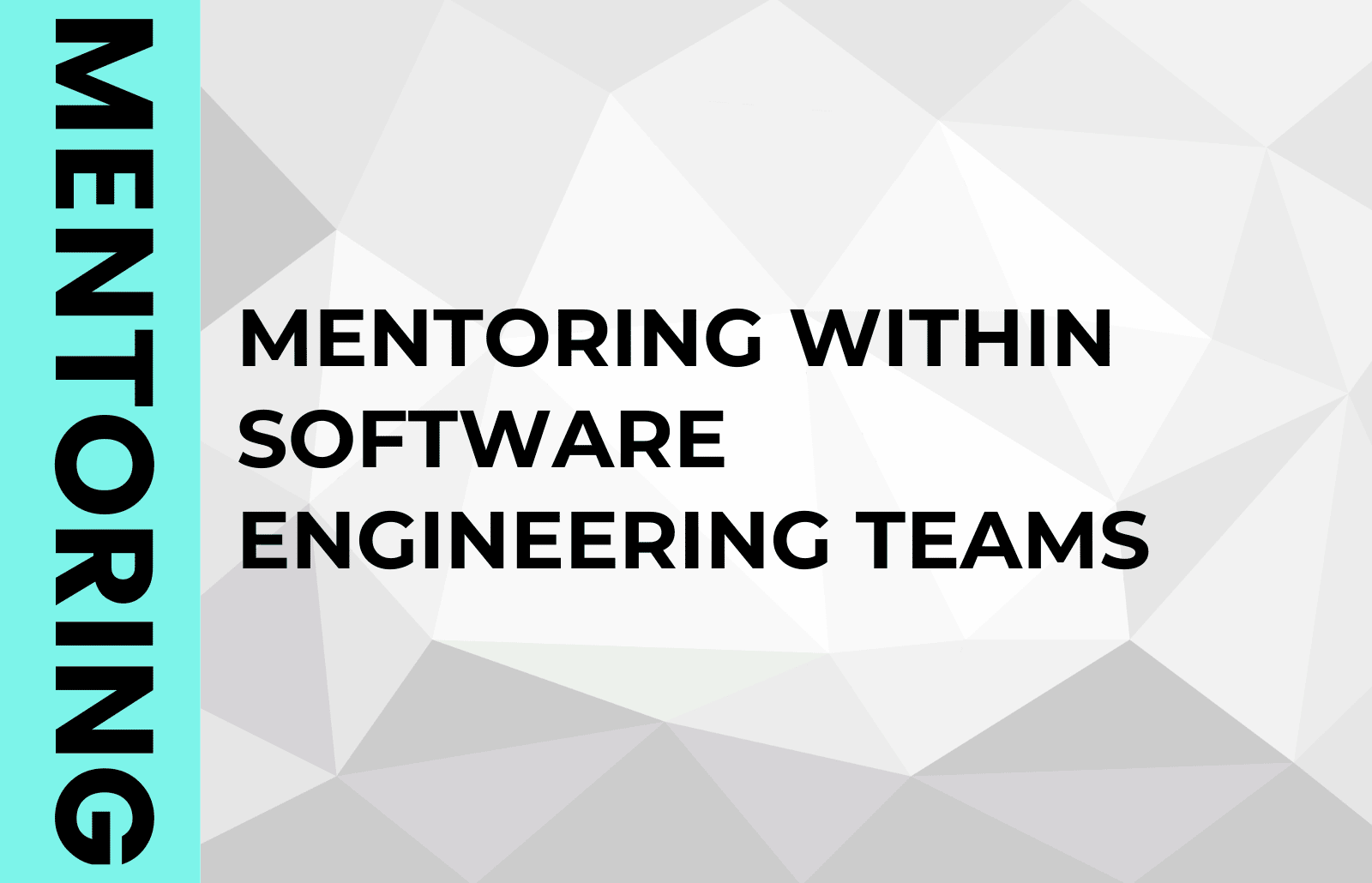Have you ever thought about mentoring and how it can help software engineering teams reach new levels of success? In this article, we will talk about the intersection of mentoring practices and software engineering teams, and how it’s helping Zartis in shaping its company culture.
What is mentoring?
Mentoring can be understood as a collaborative and at-will relationship, formal or informal, between an individual that is looking for guidance (mentee) and a more senior or experienced person (mentor) willing to provide it. The aim of mentorship is learning, professional growth, or career progression.
Informal mentoring relationships constantly occur everywhere you look: a family member asks for advice, a new member has joined the company and needs to be onboarded within the team… What characterizes these informal relationships is that, despite the fact that they are also based on objectives and people work accordingly to achieve them, progress is not formally measured.
On the other hand, a formal mentoring dynamic is usually one where the mentee defines some objectives, and the mentor, with their knowledge, experience, contacts etc, helps them in the process of achieving those objectives, while tracking any progress along the way to make sure the mentee is actually achieving the initial outlined goals. The mentor should enable the growth that is sought out by the mentee. They do not have to know everything, nor have all the answers, but instead possess the ability to provide resources, access to their network of contacts, or anything else that may enable the mentee’s progression.
How can mentoring help software engineering teams?
Once we understand what mentoring entails, what is the benefit of applying these practices and processes in a software development team?
Here we list the main benefits:
Fostering an inclusive workplace. Mentoring programs allow new and existing team members to have a trusted person to lean on to share doubts and comments with when entering the company, or when changing projects. They are also great opportunities to put people in contact with different roles, backgrounds, experiences, cultures, etc… helping each other to achieve their goals while learning and collaborating.
Helping people to acquire new skills and develop professionally. Team members acquire new skills, soft or technical, while pursuing their goals guided by their mentor. In many instances, people know what they want to be, but they don’t know how to reach it. It is also possible that people don’t even know what they want to do next, and they just feel stuck. Mentoring programs can help them to unveil the path to becoming the professional they always wanted to be. This is extremely valuable for your company as well as it can internally boost the skills and seniority of the current employees, creating new opportunities for them.
Increasing talent attraction and retention. It is well known that the IT job market is highly demanding from the point of view of attracting and retaining talent. Only those companies that manage to differentiate themselves from the rest are capable of attracting talent, and only those that provide what employees are looking for are capable of retaining it. Mentoring programs are a great tool for both cases: formal mentoring programs are attractive to candidates since they denote the company’s commitment with the evolution of the employee, and once inside the company, these programs are capable of helping to satisfy one of the most important demands of professionals in the sector: professional and career development.
It serves as a vehicle to transmit the values of your company. Mentors act, directly or indirectly as role models for their mentees. This is a great opportunity to share the values and the mission of your company, as the mentor will be leading by example while sharing their knowledge. If your company strives on quality, is there anything better than having a mentor that places quality within the core of their mentoring relationship to spread that value?

The feedback we are receiving is very positive, and it is also one of the key items that we share with potential candidates when we interview them to explain what it means to work at Zartis. Many people show an immediate interest in the matter as they see a real possibility of professional growth and career development.
How can you create your own software engineer mentor program?
Once the advantages of implementing a mentoring program in your company have been established, the question arises: where to start?
First of all, it is important to define the mentoring process that will be used. There are various types of mentorship and various mentorship models to implement it. Carefully evaluating both elements is extremely important to match the mentorship structure with the nature of your company and its needs in order to begin with a solid foundation.
Once the type and model of mentorship have been established, it is time to decide how you are going to nurture the process for these software engineer mentors and mentees. How the mentors are selected is also very important, since extensive technical knowledge or many years of experience alone do not ensure the skills that are necessary for someone to assume the role of a mentor. Active listening, empathy, and leadership, along with other skills are crucial. Although these necessary skills can be taught and worked on, identifying mentors who already have these skills will be a great step in the right direction to start the mentoring program.
On the other hand, it is important to define the support that will be provided to the members of the program. Although ownership of the mentoring process should be one of the most important things you should offer to your mentors and mentees, they should feel that they are supported by the company during this journey. These are some ideas on how your company can support the process:
- Training software engineering mentors (externally or by more experienced mentors) could bring another level of quality to the process. Simultaneously, you can homogenize the mentee experience regardless of who assumes the role of a mentor.
- Establishing effective collaboration channels between mentors where they can exchange ideas, challenges, and resources. For example, slack channels, online forums, and periodic catch-ups. Feeling the support of a mentor community could provide additional confidence to the people guiding their peers.
- Defining a coherent and logical matchmaking process where mentors can purposefully guide their mentees will improve the overall satisfaction of the program’s users while also ensuring that your company will maximize the investment in this area.
Finally, it is necessary to decide how the mentoring program is going to be supervised. Companies should define the way in which the program will be controlled to ensure that the processes follow their assigned course, feedback is regularly gathered, and improvements can be implemented based on these feedback cycles.

In addition to this thriving professional community, Zartis provides the necessary support for mentoring programs to be effective. These include weekly working hours dedicated to the program, specific communication channels for mentors to exchange ideas, experiences and doubts, and specifically certified training programs.
Conclusion
Software engineer mentor programs can help your company in boosting your software teams to a new level by fostering diversity, improving technical and soft skills, increasing talent attraction and retention, and providing a profound vehicle for sharing company values.
To maximize the impact of these mentoring programs, we recommend that you carefully plan the entire process, from how the process looks to how you will be supporting and supervising it. This is not about completing a checklist, commitment from everyone involved is crucial for the success of this implementation.
As a company, we have been pushing for these types of initiatives for a while now and our experience so far cannot be more positive!
Author:



